What Size Backwash Hose Do I Need? (Find Out Now!)

If you are a pool owner, you know that there are numerous different maintenance tasks to keep up with in order to ensure that your swimming pool remains clean and functional. One of these important maintenance tasks that helps keep your pool’s filter system in proper working order is known as backwashing.
Backwash hoses are optional but they make backwashing your pool’s filter quick and easy. They are designed to transport the water from the outlet on your pump to the designated disposal location. This brings us to the question at hand: “What size backwash hose I need?”
Generally speaking, you need a backwash hose that is long enough to accommodate the distance that you want to transport the backwashed water. Just in case, always opt for a hose that is longer than you need as you can always cut it. Whereas, the inside diameter of the hose will correspond to your pool filter’s attachment point. Aim to purchase a backwash hose with an inside diameter that is roughly 0.25” larger than your pool filter size.
That said, let’s take a deeper look at backwashing as a whole and other considerations involved in selecting the ideal backwash hose for the job.
Do You Need to Hire a Plumber?
Get free, zero-commitment quotes from pro contractors near you.

What is Backwash, or Backwashing?
Put simply, backwashing refers to a method that thoroughly cleans a swimming pool’s filter in order to avoid needing to clean it manually. Specifically, the method involves reversing the flow of water both in and out of the filter tank. The procedure should be performed until the water runs clear through the waste line.
Both Diatomaceous Earth (DE) and sand filters are backwashed in order to increase flow rate, remove trapped debris, flush out contaminants, and reduce pressure in the system.
When Should You Backwash a Pool Filter?
How often you’ll need to backwash your pool’s filter system will depend on how frequently you use your pool and how dirty it gets during swimming season. In most cases, you’ll want to backwash about once a week. As dirt and debris collect in the filter bed, resistance to flow rises, which results in a reduction in water discharge to the pool.
When the flow is inadequate for ideal water circulation, or when the pressure gauge displays a pressure increase of eight to 10 pounds above the clean pressure, this means it is probably time to backwash your pool filter. Another time where backwash your pool may be necessary is when treating cloudy water or after killing algae blooms. However, you should backwash before adding any chemicals into your pool, as the process will remove some of the pool’s existing water.
How Long Should You Backwash a Pool Filter?
In short, you should backwash for as long as needed until the water runs clear at the end of the hose. Generally speaking, the bigger the filter, the longer it will need to be backwashed. Small to medium-sized filters will typically only take about two to three minutes to clean. Whereas, larger filters can take between three and five minutes to backwash completely.
What Size Backwash Hose Do I Need?
Although backwash hoses are optional, electing not to use one can get pretty messy. These hoses are designed to transport the backwashed water from the outlet pump to the location where you want to dispose of it. So, in order to determine the proper size backwash hose that you need, you must consider two measurements: length and inside diameter.
Hose Length
When looking for the best pool backwash hose for you, consider how long you will need it to be in order to handle the distance that you want to transport the backwashed water. Depending on your state of residence, there may be specific protocols in place regarding where you can dump this excess water. Backwash hoses usually come in 25, 50, and 100-foot lengths.
While can always adjust the hose if it’s too long, buying a hose that is too short will require you to purchase another and then join the two with insert connectors and clamps. So, in an effort to save money, always opt for a backwash hose that is longer than needed.
Inside Diameter
The inside diameter of your pool backwash hose directly corresponds with your pool filter’s attachment point. Most backwash hoses have a two-inch diameter, but you’ll often find them ranging from 1.25” to 3” in diameter. To find the correct diameter, you should measure your pool filter before you purchase a backwash hose.
A backwash hose that has an inside diameter that is too small will not fit over the filter and will require an attachment, or you’ll need to buy a larger hose. Whereas, hoses with an inside diameter that is too large may work, but it will take some extra tools and effort in order to ensure that the process works effectively.
With this in mind, for best results, try to buy a backwash hose with an inside diameter that is roughly 0.25” larger than the size of your pool filter.
Additional Backwash Hose Considerations
In addition to length and inside diameter, there are a number of other factors to keep in mind as you’re considering the ideal pool backwash hose for you:
- Material: The quality of the materials used in the hose’s construction will have a direct impact on how long it lasts. Just like anything in life, you get what you pay for when it comes to pool backwash hoses. Of all the materials, PVC is the best choice. However, very few hoses are made with this material. Vinyl backwash hoses, on the other hand, are functional but weaker and more easily torn than PVC.
- Price/performance ratio: It’s unlikely that cost will be the deciding factor when choosing the ideal backwash hose. Though, it should still be considered. In order to better assess the value of a hose, compare the bottom line with the hose’s lifespan and overall performance. Ideally, you should be able to unwind and use your hose each week for routine maintenance with little issue. Higher quality backwash hoses may be pricier, but they are a worthwhile investment in the long run.
- Ease of use: While it may sound odd, there are some backwash hoses out there that are challenging to use. With this in mind, make sure that you choose a hose that won’t present any issues when you go to use it.
- Flexibility: All the best backwash hoses have a high degree of flexibility, which gives you the freedom to place the hose however you desire without the risk of kinks or damage to the hose. Not to mention, a flexible hose also makes it easier to use and more durable.
- Durability and strength: Since these hoses must manage a large volume and heavy flow of water, they must be durable. Durability and strength directly correspond to the materials and construction quality of the hose. A hose that is well-made will last you for many years, as it’ll be resistant to chemicals and sun exposure.
Do You Need to Hire a Plumber?
Get free, zero-commitment quotes from pro contractors near you.

Related Questions
Is backwash water hazardous?
In most cases, backwash water is not hazardous but it depends on where you pump your discharge water. For example, pools that have normal levels of algaecide or chloride pose a minimal threat, but higher levels can cause harm to plants, insects, and water creatures.If you’re not careful, diatomaceous earth (DE) water can suffocate a small stream or kill grass. Additionally, disposing of thousands of gallons of water downhill can result in erosion and/or flooding. To avoid any issues with over-saturation, move the hose often or run it into a storm drain, provided that this is permitted by local ordinance.
Should you backwash a pool after vacuuming?
Yes, it’s advised that you backwash your pool after you’ve vacuumed it. This will allow the filter to remove any dirt and debris from the system that you collected while vacuuming.
Do I need to backwash if I have a cartridge filter?
Pool owners with cartridge filters do not have to backwash. Instead, these filters should be removed, inspected to ensure they’re working properly, and hosed clean at least once ever swimming season.

Jessica considers herself a home improvement and design enthusiast. She grew up surrounded by constant home improvement projects and owes most of what she knows to helping her dad renovate her childhood home. Being a Los Angeles resident, Jessica spends a lot of her time looking for her next DIY project and sharing her love for home design.
More by Jessica Stone



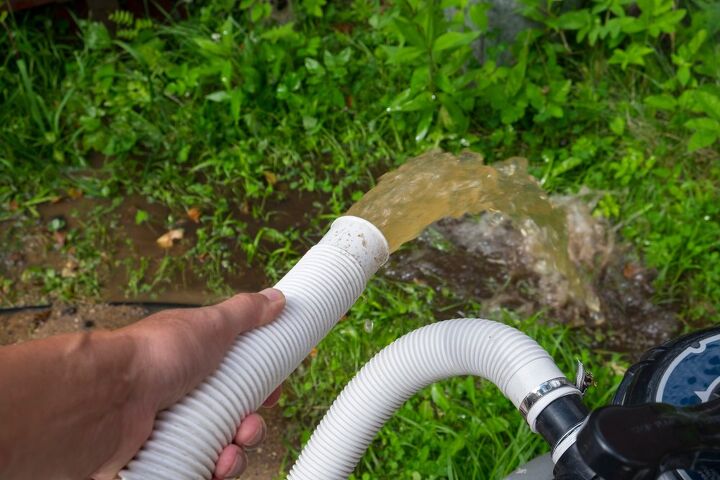






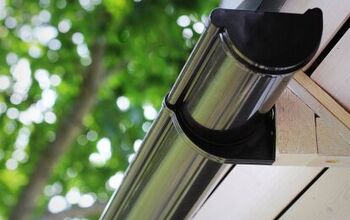

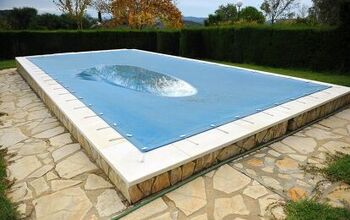

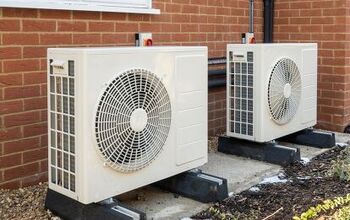
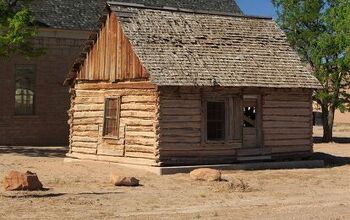
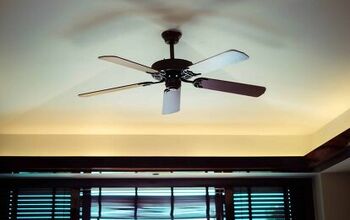


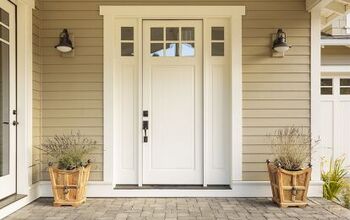
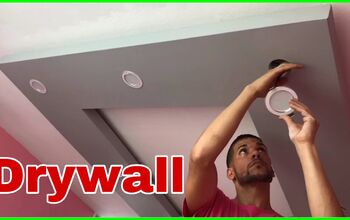
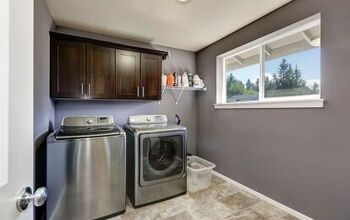

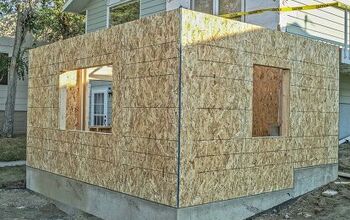

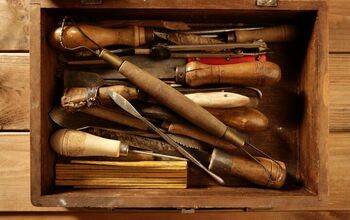
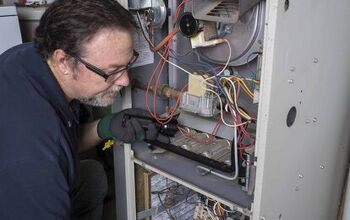
![Standard Dining Room Table Dimensions [for 4, 6, 8, 10 and 12 People]](https://cdn-fastly.upgradedhome.com/media/2023/07/31/9074335/standard-dining-room-table-dimensions-for-4-6-8-10-and-12-people.jpg?size=350x220)